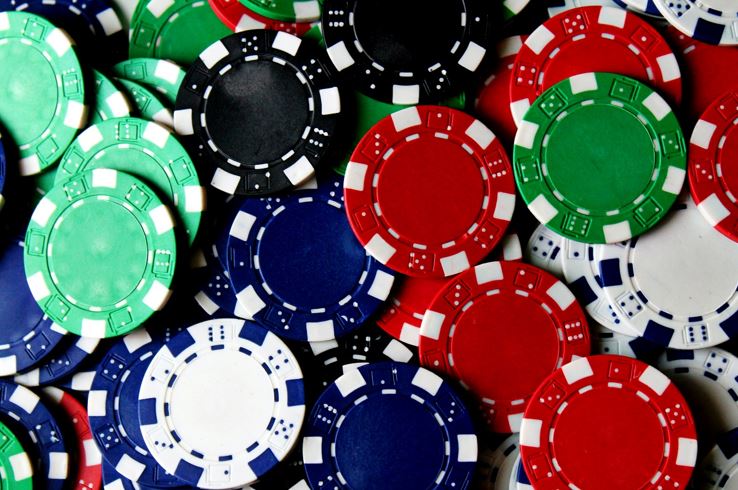While some readers may be too young to remember, the rest of us can look back at the first online poker boom as an incredible time. Everybody was falling in love with the game; poker sites were launching left, right and center – and the money some players were winning was a real eye-opener.
Notice we said first online poker boom. Although some of us never left the game we love, there is a significant revival in online poker’s fortunes. Is it enough to call it a boom? Only time will tell, but all the indications are that reports of online poker’s death were premature.
A renewed interest, as reported by USA Friendly Poker Sites, is boosted by U.S. states opening up to online gambling. New Jersey’s online poker revenues alone rose more than 200 percent year-on-year to $5.1 million in April.
The Moneymaker Effect
Accountant Chris Moneymaker is usually credited with sparking the first boom in online poker. Having bagged his seat into the 2003 $10,000 World Series of Poker main event via an online satellite tournament on PokerStars for less than a hundred bucks, he best the 839-player field to win an incredible $2,500,000.
News of how he parlayed an online satellite into such a huge prize was no doubt helped by his surname. News outlets loved the story and still report on it now, and suddenly every other hometown boy and girl thought, “Hey, I can do that.”
Hence, new customers flocked to the online poker rooms of the day. PokerStars was already considerable, but having Moneymaker as their qualifier was an incredible boost and set the site well on the way to becoming what it is today – by far the world’s largest.
But other sites of the day – some of which are no longer with us for a variety of reasons – did extraordinarily well, too. PartyPoker, Full Tilt, and Ultimate Bet were just three names to welcome hundreds of thousands of new customers.
From 2003 to 2006, online poker exploded. In 2006, the World Series Main event had soared to 8,773 entrants, more than ten times the number playing with Moneymaker in 2003. The field was bursting with online tournament satellite winners, each sporting branded shirts of their poker site.
Just as the industry looked invincible, the U.S. government decided online betting was a big no-no. Some big players, notably PartyPoker, left the U.S. market. Others, including PokerStars, soldiered on, claiming poker was a skill game and so exempt from strict online gambling laws.
However, the Department of Justice took a different view, and PokerStars was closed down in the United States on April 15, 2011, a day forever remembered as “Black Friday.”
Instantly, the global pool of players took a big hit. However, the game’s popularity had spread far and wide by then, and sites like PokerStars were able to swallow the bitter pill and continue with much success.
With that all said and done, poker revenues have been falling steadily in recent years. Players have turned increasingly to online sports betting and casino games. Although the hardcore remained, ensuring flagship online tournament series continued to flourish, cash games and sit and goes dwindled slowly.
New Decade, New Hope
While 2020 will be remembered for all the wrong reasons, namely a global pandemic, it has heralded a significant uptick in online poker’s fortunes.
It would be easy to say that people were stuck at home because of the coronavirus situation, so spent more time playing online, but the truth is numbers were looking healthier anyway. For example, in March, PokerStars staged its 14th anniversary Sunday Million tournament, attracting an incredible 93,016 players – 51% up on the year before. This massive turnout was before most people were in any form of lockdown.
The U.S.-facing poker room Global Poker is also enjoying a good run. After sometimes running an overlay on its $50,000 guarantee tournament, it ran a $500k guarantee in April and pulled in a prize pool of $643,000.
American Markets Opening Up Again
The most significant positive factor in online poker numbers is the online game’s return in the United States. After that blanket ban back in 2006 under the Unlawful Internet Gambling Enforcement Act, online gaming companies have been trying to force change.
Lobbying increased, especially so after PokerStars withdrew in 2011, and slowly but surely, there was light at the end of the tunnel. New Jersey was the first state to allow online poker games for its residents.
Ever since the number of U.S. states allowing online poker within state lines has been rising, and more are on the way. Each time a state opens up, more U.S. players return to the game, helping to build domestic liquidity. The hope one day is that U.S. players can join the “rest-of-the-world” pool.
Here are the states open for online poker business:
- New Jersey
- Nevada
- Pennsylvania
- Delaware
- West Virginia
And hoping to join the list soon are large states like California, New York, Illinois. Michigan and Massachusetts.
With renewed interest in the game and more U.S. states opening up for business, it seems online poker can enjoy something of a second boom. Only time will tell, but the future certainly looks brighter than it did just five years ago.



